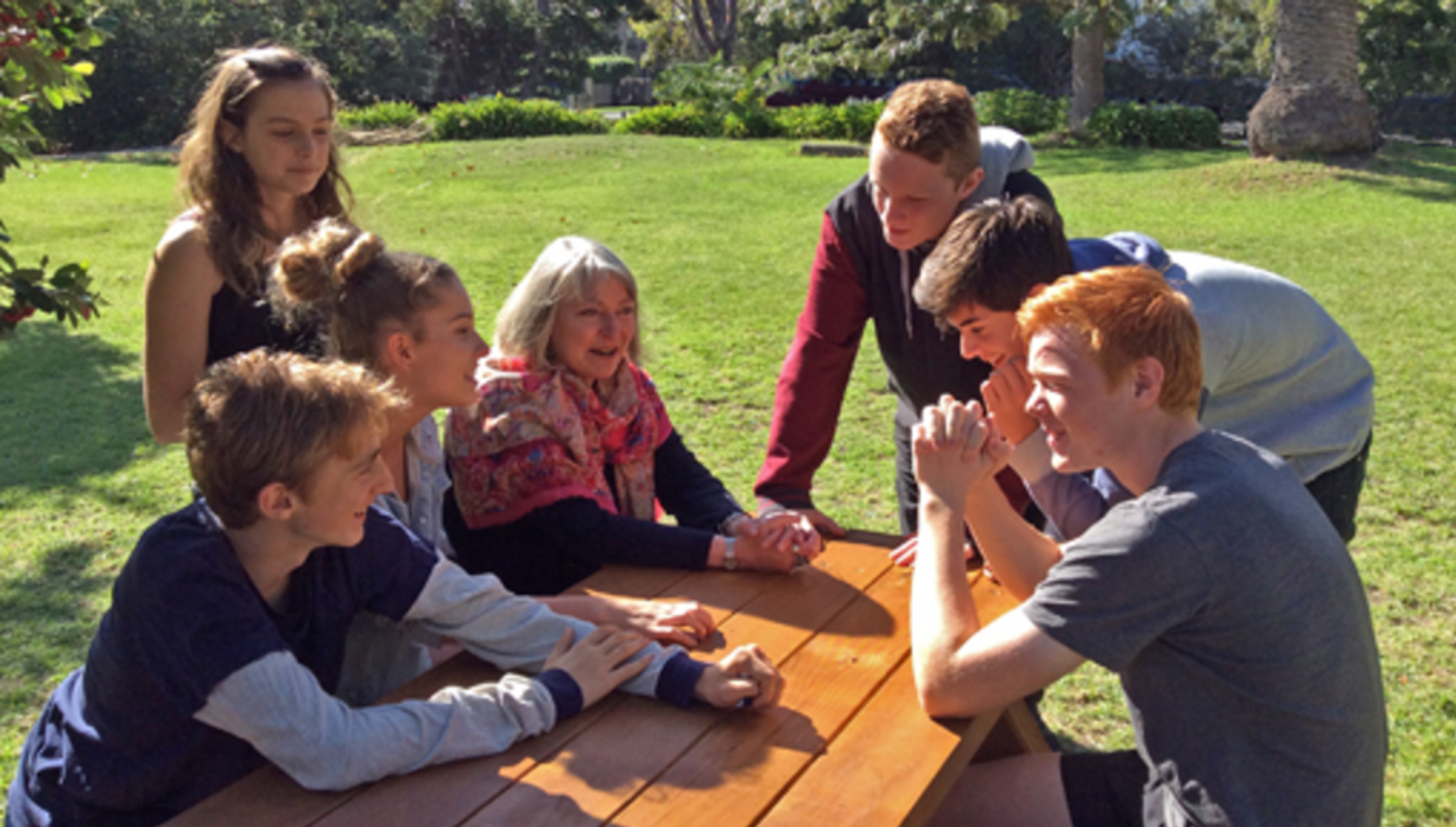FROM THE PRINCIPAL

Learning; work and play
by Marilyn Smith
This trio of concepts has become something I find myself returning to fairly regularly. In particular, what do we mean when we talk about school work? We talk about it as though we do all know and agree on what we are referring to. The idea of ‘setting lots of work’ still seems to satisfy many parents, and schools, as a recipe for successful learning. The students are kept busy, focused - and quiet.
More of this ‘work’ is set for ‘homework’, which is packaged into neat blocks such as half an hour of Maths each night. A gradient of increasing time for homework confronts students as they make their way through primary school to the final years of secondary school, culminating in up to four hours a night for some students.
It seems that homework makes many parents feel secure in the belief that this indicates academic rigour and a straight pathway to success. Even some kindergartens set regular homework - “to get the children used to” the routine that will be their lives until they are about 18 years old.
This ‘work’ is often focused on comprehension exercises, worksheets, summarising main facts, information recall, committing information to memory and consolidating mathematical processes, memorising rules and spelling or formulas. Often it will involve repeating and revising key information for tests and practising the organisation and sequencing of information or arguments into essays.
Too often homework is solitary, predictable and rarely requires what we understand to be higher order thinking skills. It certainly teaches compliance, physical self-control, a regard for routine. It imposes conformity and reinforces the positive relationship between obedience and reward. It is often mind-numbingly boring.
Such work teaches students to resist instant gratification and to accept that work comes before play. It is the perfect preparation for an industrial-age society.
As a contrast to the serious notion of ‘work’ the idea of ‘play’ gets pretty bad press. ‘Play’ is frivolous, something we are allowed to do when the work is finished, something students do for fun, but that they need to ‘stop playing and get on with their work’ in the serious business of education and achieving academic success.
The trouble, of course, is that play actually leads very directly to all we know about higher order thinking; those qualities that have come to be recognised as C21st skills, and will provide the bases for emergent job opportunities.
"I would like to believe ... that even at the end of their secondary education students are playful, curious, entrepreneurial - and have the courage to question."
Play leads to invention, pretending and role play, conceptualising, questioning, mucking around and coming up with solutions. It encourages imagination and demands creativity. Play is collaborative, open ended, active and likely to be noisy. We cannot guarantee what the outcome might be with play – but we do know it is what gives rise to human ingenuity as well as equipping individuals with a belief in their own agency and capacity.
Focused teaching through play is what sets our Kindergarten apart from so many other programs for young children. Genuine play pedagogy requires a sophisticated understanding of how young children learn and the extraordinary conceptual understandings they are capable of when their imaginations are unleashed and they are respected and encouraged as thinkers and creators.
I would like to believe that Preshil does not extinguish our children’s capacity and zest for rich learning and intellectual vitality through the unthinking conformity to the conventional notions of school work and that even at the end of their secondary education they are playful, curious, entrepreneurial - and have the courage to question.
I recently had the pleasure of witnessing some of our students at play. At the Jazz Night we saw an extraordinary number of our students step forward to perform. They demonstrated all the qualities of play mentioned above, but we saw the results of real work as well; methodical, regular, demanding practice and the determination to achieve mastery of an instrument in harmony with others.
This same quality is observable not just in music, but in the learning that takes place across both the Primary and Secondary School at Preshil - and you can read about it throughout our newsletters.
This is a far cry from the grey shadow that hangs over so many of our children and adolescents as they trudge off to another day of work.
